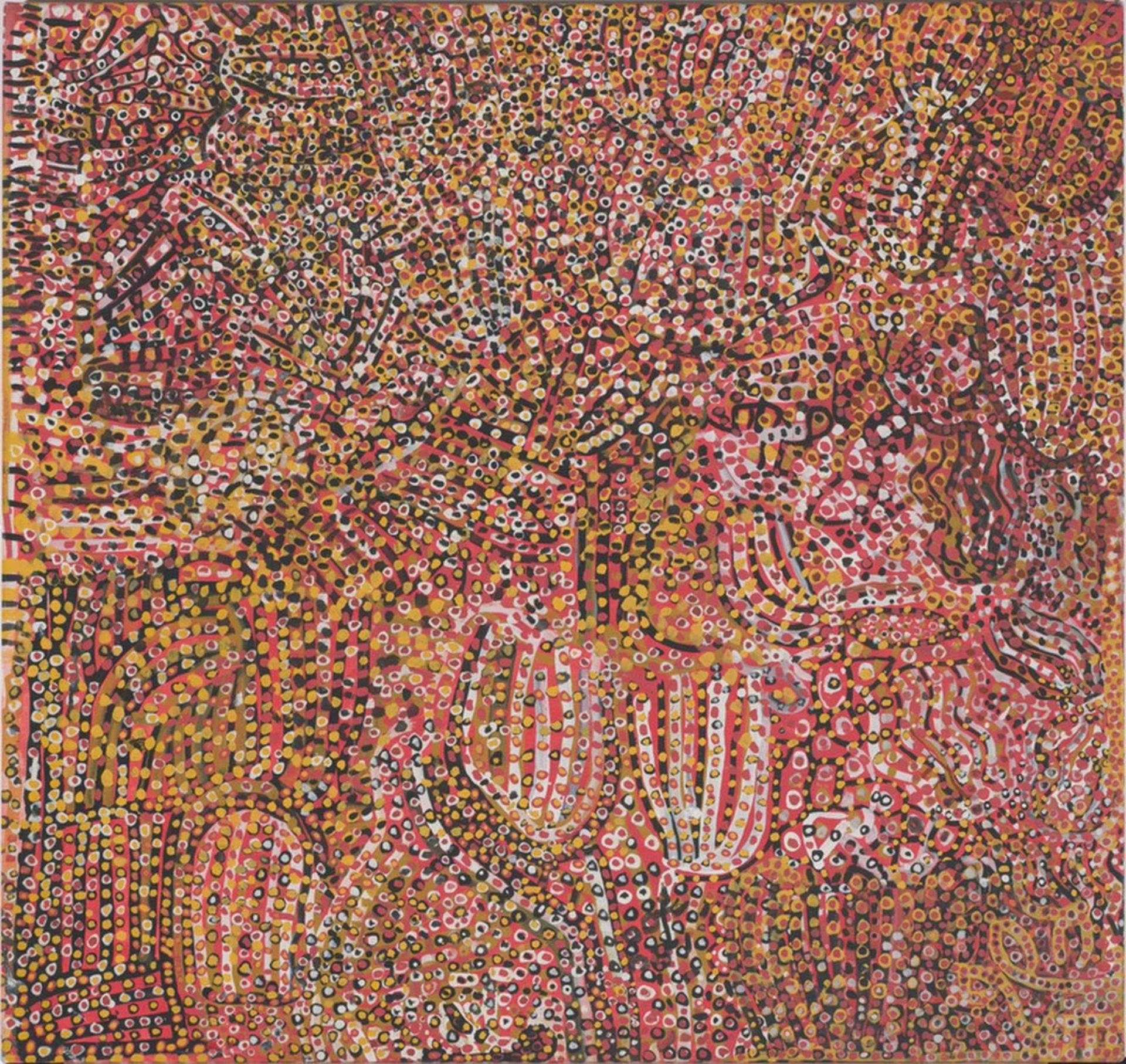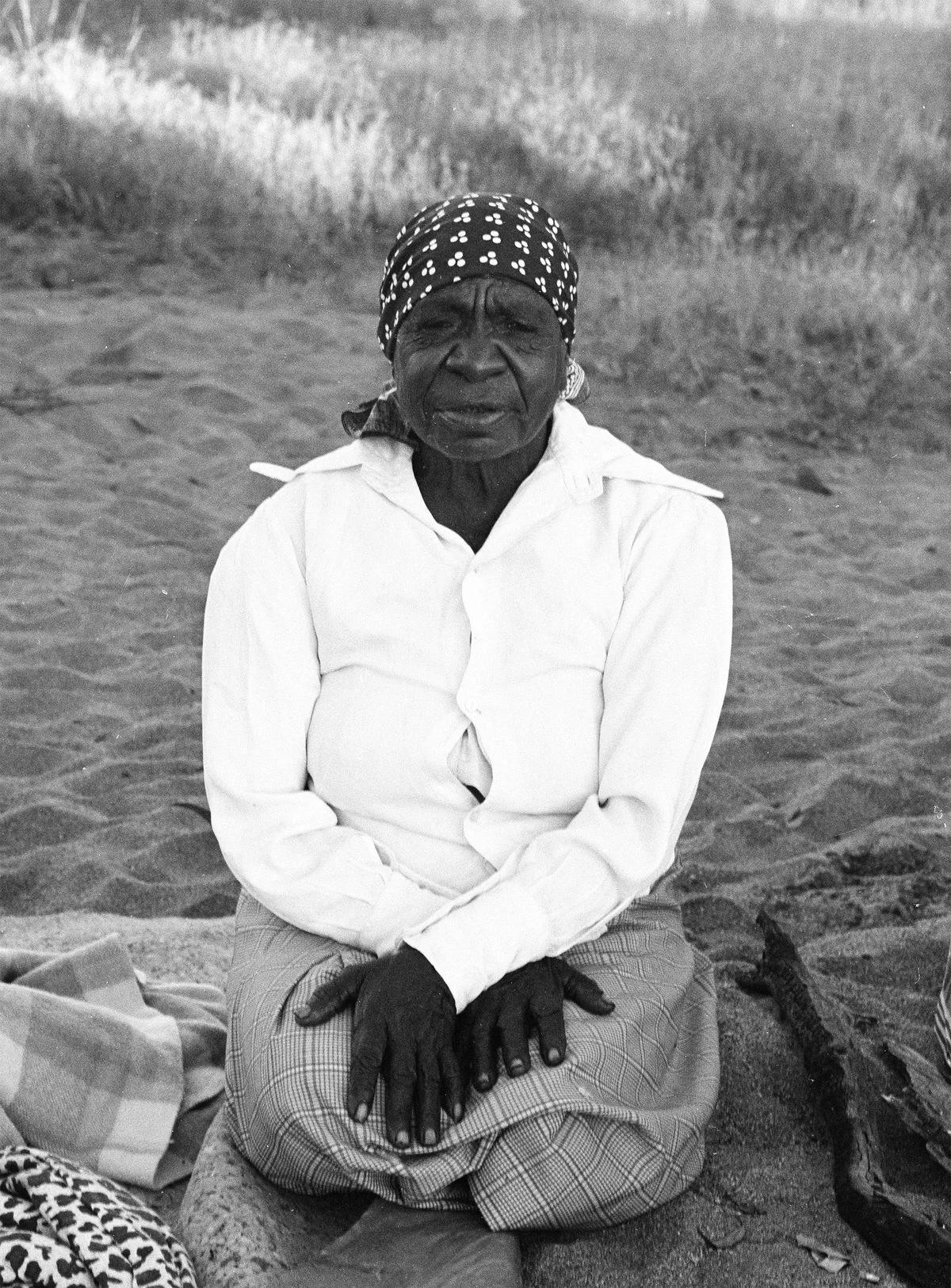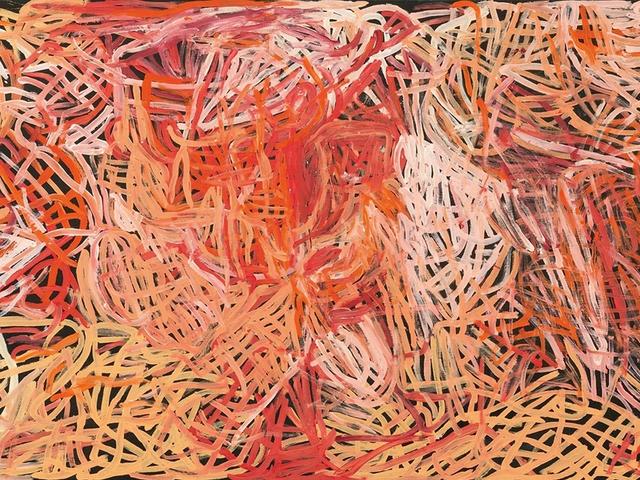The first large-scale European presentation of art by the Australian Indigenous painter Emily Kam Kngwarray will open at Tate Modern in London in 2025.
Tate Modern and the National Gallery of Australia will collaborate closely on the London show, according to their respective directors Karin Hindsbo and Nick Mitzevich.
The announcement of the as yet unnamed London exhibition was made on 30 November at the media preview of the National Gallery of Australia’s own survey exhibition of the artist’s work.

Emily Kam Kngwarray, Ntang Dreaming (1989) © Emily Kam Kngwarray/Copyright Agency
Kngwarray, who was born around 1914 (before proper record-keeping in the desert) and died in 1996, was an Anmatyerr woman and a senior custodian of her country, Alhalker, which lies 250km north east of Alice Springs in the Northern Territory.
Kngwarray grew up living a traditional life on the edge of the Simpson Desert and could remember seeing a white person for the first time. As an adult, when white settlers took over Indigenous lands for grazing, Kngwarray worked on cattle stations.
In the 1970s Kngwarray and other women of Utopia, a region adjacent to Alhalker, were introduced to batik and later to painting on canvas.
Kngwarray did not pick up a brush until her mid-70s but in the following decade she transformed into a superstar of Australian art. This did not change her simple life and she lived on her ancestral lands her entire life.
In 1992 Kngwarray received an Australian Artist’s Creative Fellowship from then prime minister Paul Keating.
After her death, important solo exhibitions were mounted including the 2008 National Museum of Australia show called Utopia: the Genius of Emily Kame Kngwarreye (the alternative spelling of her name), which toured to the National Museum of Art, Osaka, and the National Art Centre, Tokyo, Japan.
In 2022, Gagosian gallery in Paris staged a solo show of Kngwarray’s work. Collectors of her vibrant canvases depicting bush foods and sacred ceremonies include the American actor Steve Martin.
“The art of Emily Kam Kngwarray is remarkable for its fusion of colour and gestural brushwork, and its stylistic breadth and diversity,” Mitzevich says.
“Through her unparalleled talent and deep cultural connections, Kngwarray’s works transcend time, inviting audiences to explore the spiritual landscapes and ancestral narratives woven intricately within each stroke.”
Hindsbo says that putting Kngwarray in the spotlight in London will reflect Tate’s ongoing commitment to “better representing Australian art”.
“This project encapsulates what Tate Modern is all about: celebrating the world’s most significant artists—those who shape international art history, speak to our times, and imagine new futures—and giving our visitors the opportunity to experience extraordinary works of art,” she says.
Kngwarray is remembered by her family as charismatic, humorous and energetic, according to the National Gallery of Australia co-curators Kelli Cole and Hetti Perkins, who consulted with the artist’s wider family still living on ancestral lands.



